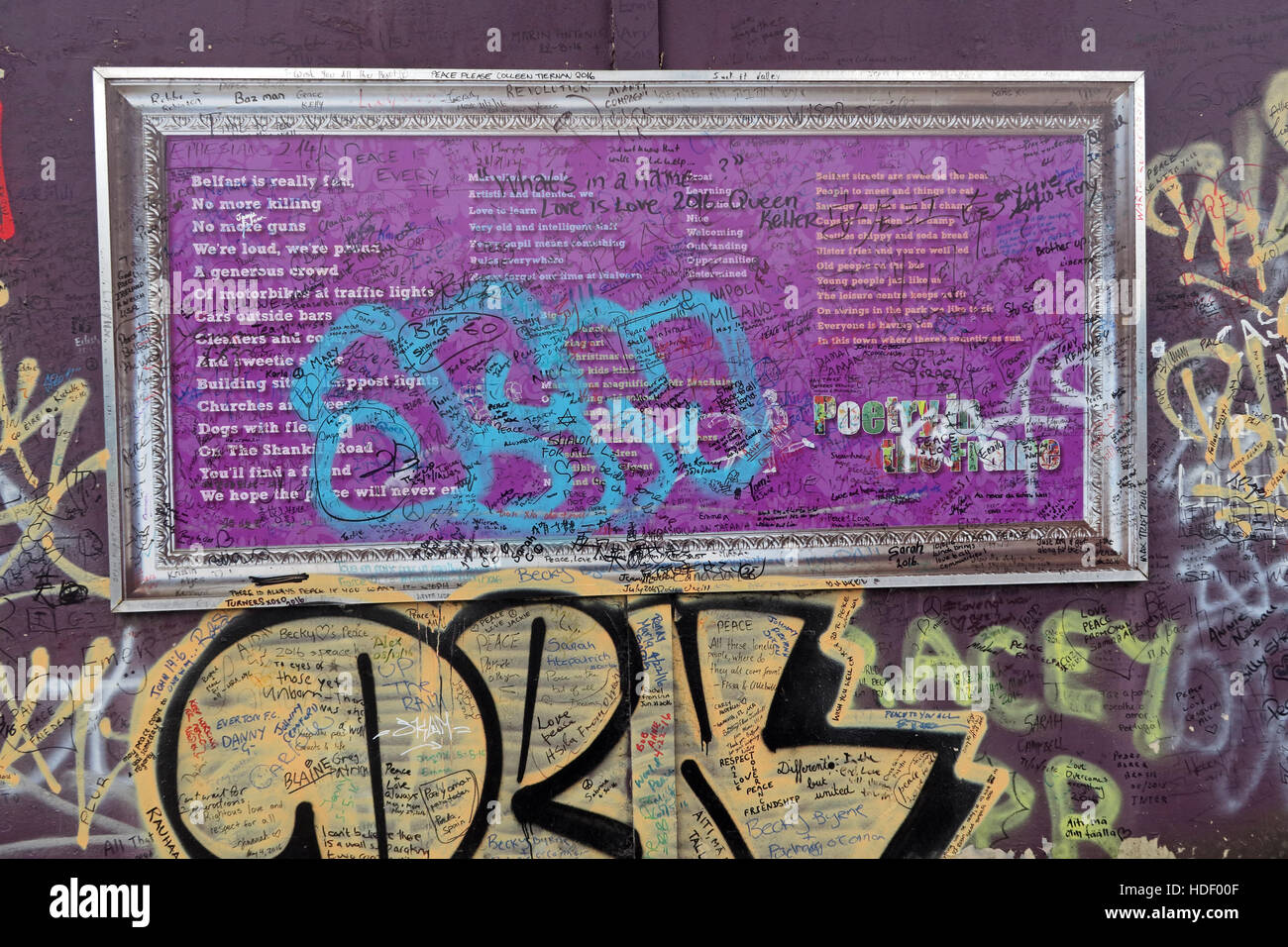Rejecting poetry in the frame - Belfast International Peace Wall,Cupar way,West Belfast,NI,UK

Image details
Contributor:
Tony Smith / Alamy Stock PhotoImage ID:
HDF00FFile size:
57.1 MB (3.5 MB Compressed download)Releases:
Model - no | Property - noDo I need a release?Dimensions:
5472 x 3648 px | 46.3 x 30.9 cm | 18.2 x 12.2 inches | 300dpiDate taken:
20 October 2016Location:
Cupar way,West Belfast,NI,UKMore information:
The peace lines or peace walls are a series of border barriers in Northern Ireland that separate Catholic and Protestant neighbourhoods. They have been built at urban interface areas in Belfast, Derry, Portadown and elsewhere. The stated purpose of the peace lines is to minimise inter-communal violence between Catholics (most of whom are nationalists who self-identify as Irish) and Protestants (most of whom are unionists who self-identify as British). The peace lines range in length from a few hundred yards to over three miles (5 km). They may be made of iron, brick, and/or steel and are up to 25 feet (7.6 m) high. Some have gates in them (sometimes staffed by police) that allow passage during daylight but are closed at night. The most prominent peace lines in the past few years separate the nationalist Falls Road and unionist Shankill Road areas of West Belfast; the Catholic Short Strand from the Protestant Cluan Place areas of East Belfast; and the Protestant Fountain estate and Catholic Bishop Street area of Derry. In 2008, a public discussion began about how and when the peace lines could be removed. While, on 1 September 2011, Belfast City Council agreed to develop a strategy regarding the removal of peace walls, a study was released in 2012 indicating that 69% of residents believe that the peace walls are still necessary because of potential violence. At the end of 2011, several local community initiatives resulted in the opening of a number of interface structures for a trial period. In January 2012, the International Fund for Ireland launched a Peace Walls funding programme to support local communities who want to work towards beginning to remove the peace walls. In May 2013, the Northern Ireland Executive committed to the removal of all peace lines by mutual consent by 2023.